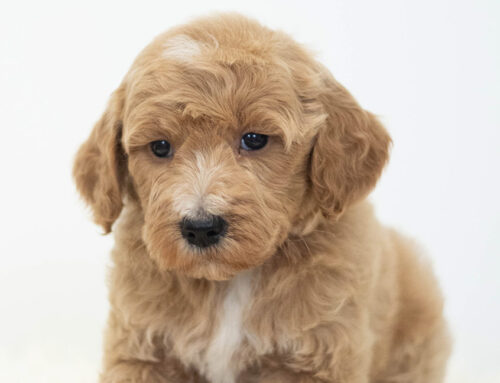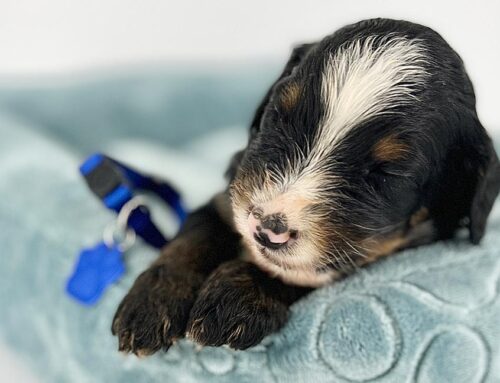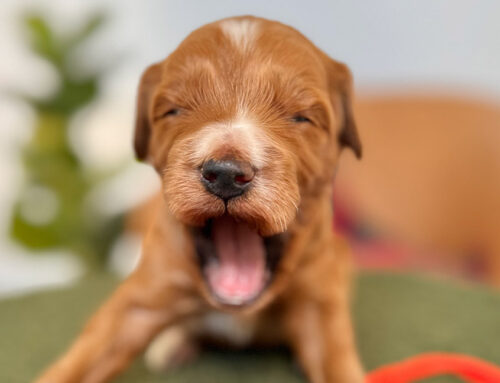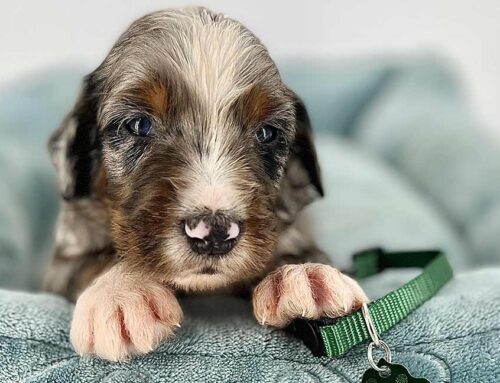Mini Bernedoodle Magic: Everything You Need to Know About This Adorable Hybrid
If you’re searching for a dog that’s equal parts playful, affectionate, and downright irresistible, the Mini Bernedoodle might just be your perfect match. A cross between a Bernese Mountain Dog and a Miniature or Toy Poodle, this hybrid breed combines the best traits of both parents—intelligence, loyalty, and a teddy bear-like appearance—all in a compact, low-shedding package.
At Double U Doodles, we specialize in breeding healthy, well-socialized Mini Bernedoodles with outstanding temperaments. Whether you’re a first-time dog owner or a seasoned pet parent, this guide will cover everything you need to know about this delightful breed, from their appearance and temperament to grooming needs and training tips.
What Is a Mini Bernedoodle?
A Mini Bernedoodle is a designer dog breed created by crossing a Bernese Mountain Dog with a Miniature or Toy Poodle. The goal? To blend the Bernese’s gentle, loving nature with the Poodle’s intelligence and hypoallergenic coat.
 Generations & Sizes
Generations & Sizes
Mini Bernedoodles come in different generations, affecting their size and coat type:
- F1 (50% Bernese, 50% Poodle) – More variation in coat and size.
- F1B (75% Poodle, 25% Bernese) – Typically curlier and lower-shedding.
- Multigen (F2, F2B, etc.) – Bred for consistency in traits.
Size Categories:
- Mini Bernedoodle: 15–35 lbs, 12–22 inches tall
- Tiny Bernedoodle (Toy Bernedoodle): Under 15 lbs (less common)
Mini Bernedoodle Appearance: A Teddy Bear Come to Life
One look at a Mini Bernedoodle, and you’ll understand why they’re often called “living teddy bears.” Their fluffy coats, expressive eyes, and compact size make them utterly irresistible.
Coat Types & Colors
Coat Texture: Can be wavy, curly, or straight (depending on Poodle influence).
Common Colors:
- Tri-color (black, white, and rust—classic Bernese look)
- Bi-color (black & white, chocolate & white)
- Phantom, sable, or merle (rarer but stunning)
Do They Shed? Hypoallergenic Qualities
While no dog is 100% hypoallergenic, Mini Bernedoodles are low-shedding, making them a better choice for allergy sufferers than many other breeds. An F1B (75% Poodle) will typically have the curliest, most hypoallergenic coat.
Mini Bernedoodle Temperament: The Ultimate Companion
If you want a dog that’s friendly, smart, and full of love, the Mini Bernedoodle delivers. Here’s what to expect:
 1. Affectionate & People-Oriented
1. Affectionate & People-Oriented
These pups thrive on human companionship and love being involved in family activities. They’re known for their gentle, cuddly nature, making them fantastic therapy or emotional support dogs.
2. Intelligent & Highly Trainable
Thanks to their Poodle genes, Mini Bernedoodles are quick learners. They excel in:
- Obedience training
- Agility courses
- Trick training
Pro Tip: Use positive reinforcement (treats, praise, play) for best results—they aim to please!
3. Playful Yet Adaptable
- Energetic enough for hikes, fetch, and dog parks.
- Calm enough to snuggle on the couch.
- Great for apartment living (with proper exercise).
4. Good with Kids & Other Pets
Their gentle, patient demeanor makes them excellent family dogs. Early socialization ensures they get along well with other animals.
Caring for Your Mini Bernedoodle
 Exercise Needs
Exercise Needs
- 30–60 minutes of activity daily (walks, playtime, mental games).
- They love interactive toys, puzzle feeders, and training sessions.
Grooming Requirements
- Brushing: 2–3 times a week to prevent mats.
- Professional Grooming: Every 6–8 weeks for trims.
- Ears & Teeth: Clean regularly to prevent infections.
Diet & Nutrition
- High-quality kibble (for small to medium breeds).
- Watch portion sizes—they can gain weight easily.
Health & Lifespan
Average Lifespan: 12–15 years.
Common Health Concerns:
- Hip dysplasia (rare in minis but possible)
- Eye conditions (progressive retinal atrophy)
- Allergies (food or environmental)
Reputable breeders (like us at Double U Doodles!) perform health testing to minimize risks.
Training Your Mini Bernedoodle
 Puppy Training Tips
Puppy Training Tips
- Start early with socialization (expose them to people, pets, sounds).
- Crate training helps with housebreaking.
- Basic commands (sit, stay, come) should be taught early.
Preventing Problem Behaviors
- Chewing: Provide plenty of chew toys.
- Barking: Teach the “quiet” command.
- Separation Anxiety: Gradually increase alone time.
Is a Mini Bernedoodle Right for You?
Best For:
✔ Families with kids
✔ First-time dog owners
✔ Apartment dwellers (with exercise)
✔ Those wanting a low-shedding, affectionate companion
Think Twice If:
✖ You’re away from home 8+ hours daily (they hate being alone).
✖ You dislike grooming (they need regular brushing).
✖ You want a completely hypoallergenic dog (no dog is 100% allergen-free).
FAQ: Mini Bernedoodle Questions Answered
How much does a Mini Bernedoodle cost?
From a reputable breeder, expect $3,000–5,000+ depending on lineage, coat, and size.
Are they easy to potty train?
Yes! Their intelligence helps, but consistency is key.
Do Mini Bernedoodles bark a lot?
They’ll alert you but aren’t excessive barkers—training helps.
Can they live in hot climates?
Yes, but avoid midday heat—their thick coat can make them prone to overheating.
Are they good with cats?
With proper introductions, many do well with feline siblings!
Final Thoughts: Why We Love Mini Bernedoodles
At Double U Doodles, we’re obsessed with this breed—and for good reason! Mini Bernedoodles are loyal, smart, and full of love, making them the perfect addition to any home.
If you’re ready to welcome a fluffy, fun-loving companion into your life, a Mini Bernedoodle might just be your perfect match.
Interested in one of our puppies? Contact us to learn more about our upcoming litters!

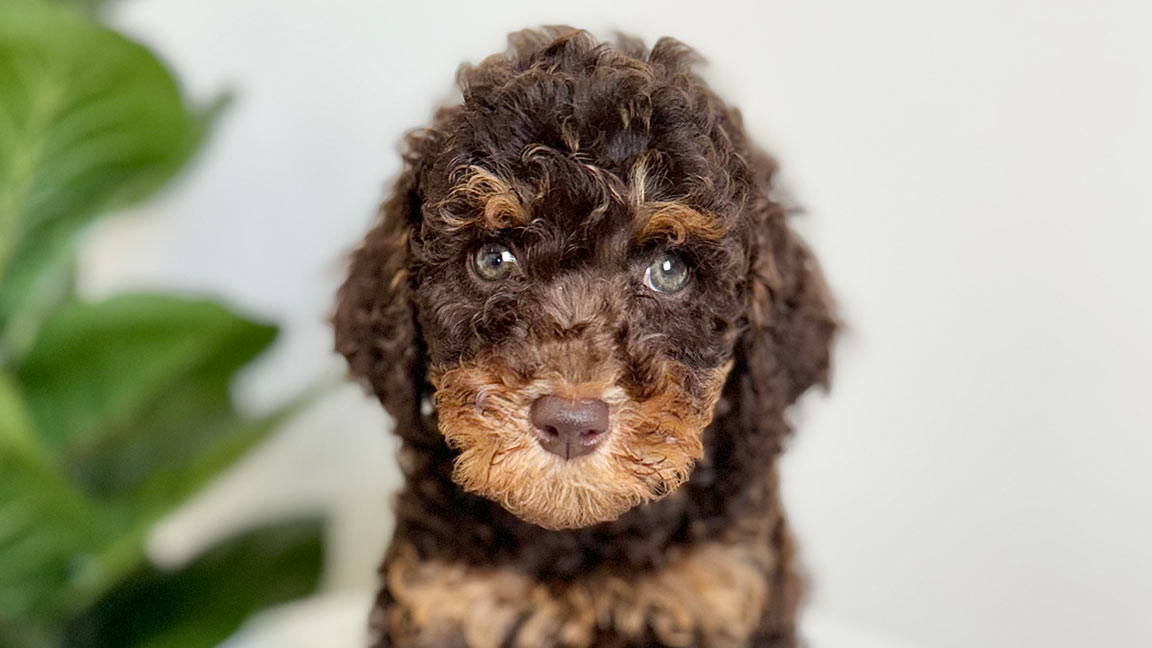
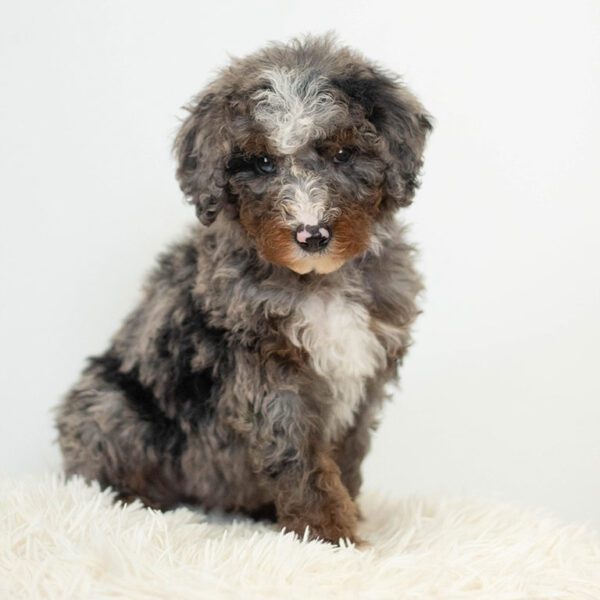 Generations & Sizes
Generations & Sizes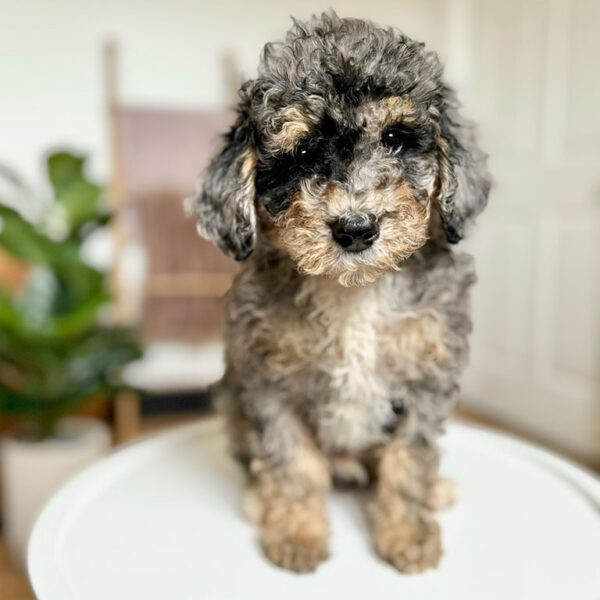 1. Affectionate & People-Oriented
1. Affectionate & People-Oriented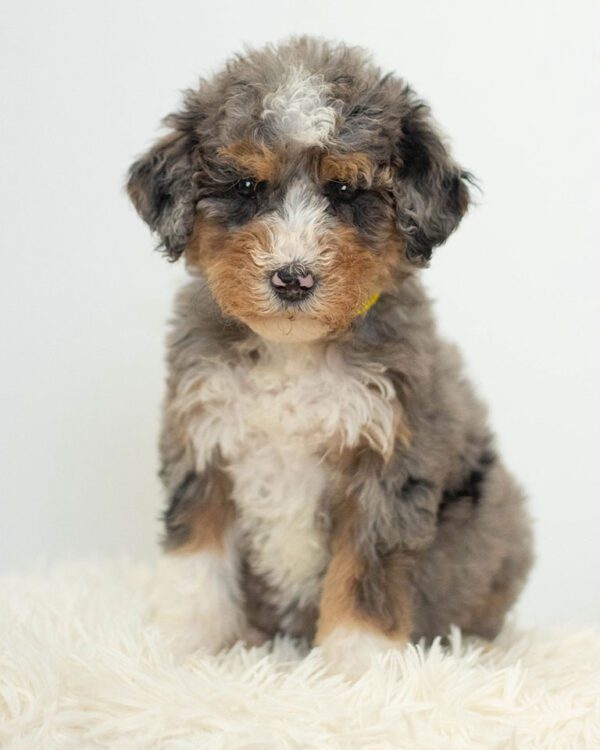 Exercise Needs
Exercise Needs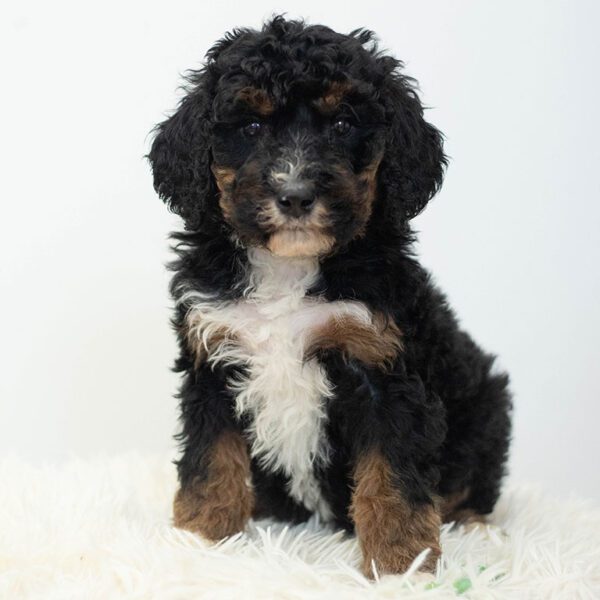 Puppy Training Tips
Puppy Training Tips